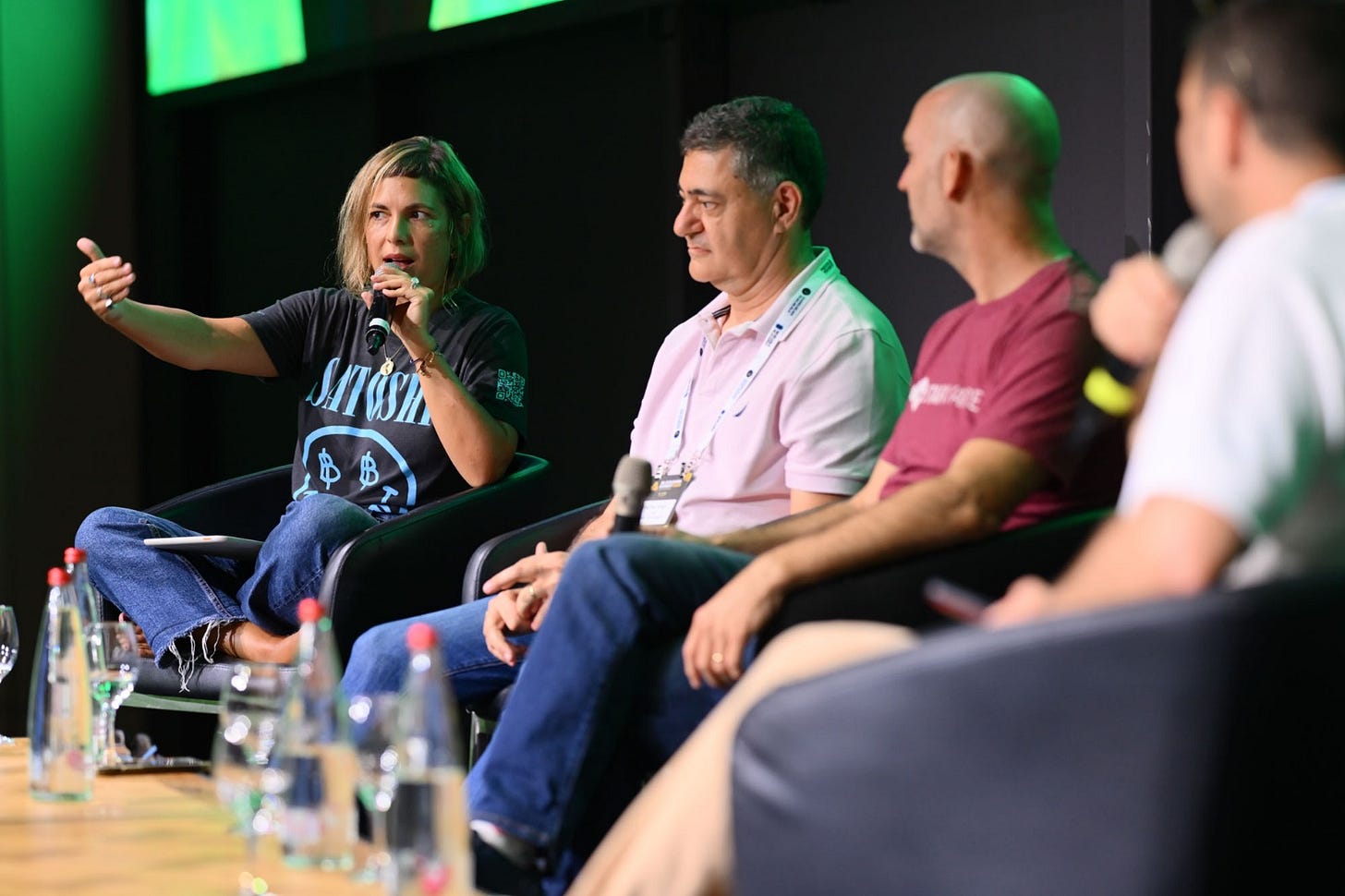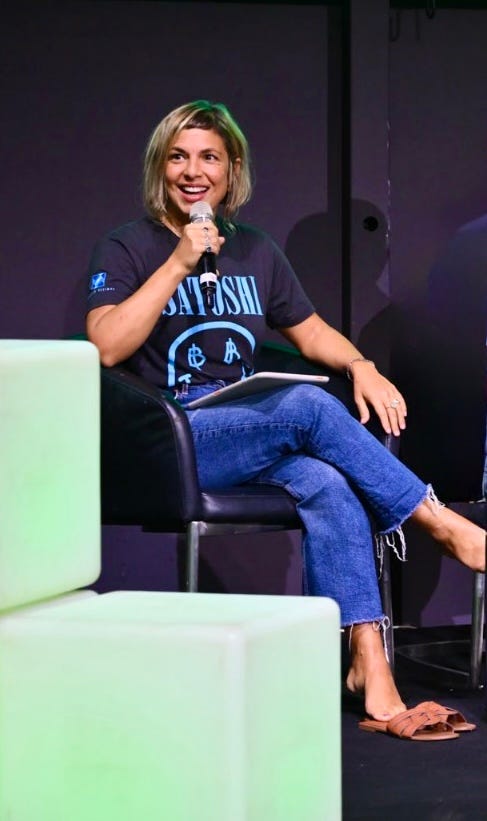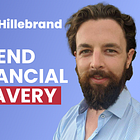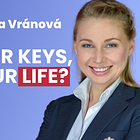Between Bitcoin & CBDC: Our Economic Freedom in an Emerging Monetary System
Reflections after the panel at Blockchain Expert 2025 on the monetary future of the world, and on the choice between convenience with control and freedom with responsibility
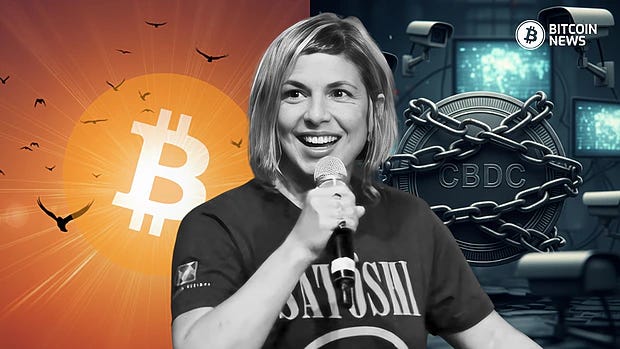
Yesterday, at the Blockchain Expert conference, we dealt with a question that is becoming central to the public discourse: not which app we’ll use to pay with tomorrow morning, but what kind of economic world we will live in in the coming years. This is no longer a distant reality – it is an emerging one, happening in our world whether we are aware of it or not. This conference was not only a stage for technological dialogue, but also an arena for deep questions about freedom, responsibility, and the structure of power in the financial world.
Bitcoin was designed from the start to operate without the need for trust: complete transparency, open code, full decentralization. It grants the individual real control over their money. Opposite it, the CBDC – such as the Digital Shekel or the Digital Euro – continues the fiat model: money that relies on trust in centralized institutions. In practice, this means life under tight control, needing approval for every move, with no trace of privacy.
Stablecoins have become a popular bridge between the old and new worlds: a market cap of over $265 billion, daily usage of more than $100 billion, and projections to reach $2 trillion by 2028. They are convenient, dollar-pegged, and save people in crisis economies. But they are centralized and dependent on private entities and regulators. In fact, they are the digital arm of the dollar. The GENIUS Act in the U.S. defines them as national infrastructure assets: they must be fully backed, undergo monthly audits, and comply fully with AML/KYC. In other words – more oversight, less freedom.
More on this in my latest keynote speech:
CBDCs take it a step further. They promise efficiency, but at a clear price: programmability, restrictions, control over expiration dates, where money can be used, and the ability to lock or freeze wallets. This is money subject to compliance, not trust. In Israel, the Digital Shekel project is presented as innovative and cautious, but the public is excluded from the discussion. There is no real debate about the risks, and the Bank of Israel along with the media usually present a one-sided picture. This is dangerous: if today the law still guarantees rights, tomorrow a different government could tighten control – and with such a tool in its hands, the path to an authoritarian regime is short and dark. The technological capabilities embedded in the Digital Shekel can be abused, even if they lie dormant at the launch stage – and that is precisely what makes it so dangerous.

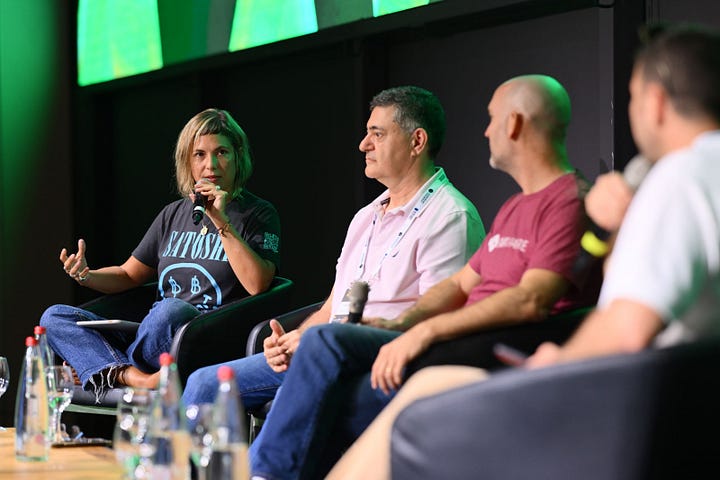
Paradoxically, this centralization and these threats will accelerate Bitcoin adoption, as it will be seen as the only real alternative to preserving economic freedom. The public will choose between convenience and freedom, and many will prefer cumbersome Bitcoin over an easy and supervised CBDC.
Bitcoin is a more complex creature. It is not just a means of payment or a store of value like gold. Bitcoin has the capacity to replace the global monetary system. Using it requires more learning, responsibility, and discipline. But it is the only alternative that restores control of money to the individual. Against a reality of growing surveillance and centralization, Bitcoin offers a safety net that cannot be controlled.
Experimenting with new monetary tools worldwide
On the CBDC front, the European bloc and India are following China, and Israel will likely follow Europe – which is preparing for the first step of launching the Digital Euro next month (October 2025) across the EU, in a stage that will last about two years. Most countries in the world are experimenting and will continue experimenting in the coming years with CBDC and stablecoin pilots.
The U.S. is leading the race on Bitcoin, through regulation and the implementation of stablecoins, while other countries like Pakistan, Taiwan, Bhutan, and even Russia – are experimenting with Bitcoin. In recent years, I myself have visited cities, islands, and circular communities where Bitcoin is used as a means of payment and not only as an investment tool – places like Madeira in Portugal, the city of Lugano in Switzerland, El Salvador, and more. The change is happening, and will continue to happen, before my very eyes. The open question is – will we choose to lead or to be dragged along?
The choice ahead: Convenience under control or freedom with responsibility
Yesterday’s panel only sharpened for me how much the questions of financial freedom, economic sovereignty, and personal responsibility are not academic. As someone who has been following this field in recent years – as a journalist, researcher, and lecturer – I see how close these choices are, and how relevant they are to every one of us. We are in a race, and the choice – convenience or freedom – will be upon us sooner than we think.
“The state is not your friend,” I said on the panel. “We are in a race to change the global monetary system. In the long run, Bitcoin will win; in the short run, stablecoins will help us get there; and CBDCs will teach people a lesson along the way.”
*This op-ed was originally published on CryptoJungle website
Watch our latest episodes of “You’re The Voice”:
Sponsors:
Trezor
►► Get your TREZOR wallet & accessories, with a 5% discount, using my code at checkout (get my discount code from the episode - yep, you’ll have to watch it)
BitVault
►► Shield your bitcoin with time-delayed transactions over multisig with BitVault
Special offers:
►► 10% off on Augmented NAC: I arranged a 10% discount on the Augmented NAC from ZeroSpike, using the code: YCXKQDK2, and this link. (Please note, this is not medical advice and you should consult your MD). Watch the episode with Tina below.
►► Watch “New Totalitarian Order” conference with Prof. Mattias Desmet & Efrat - use code EFRAT for 10% off
►► Get a second citizenship and a plan B to relocate to another country with Expat Money, leave your details for a follow up: https://expatmoney.com/efrat
Follow me:
Twitter | YouTube | Instagram | My podcast | All other links
— Support my work —
To support me, you can “buy me a coffee” for a 1-time support, or with Bitcoin here.
Thank you!




